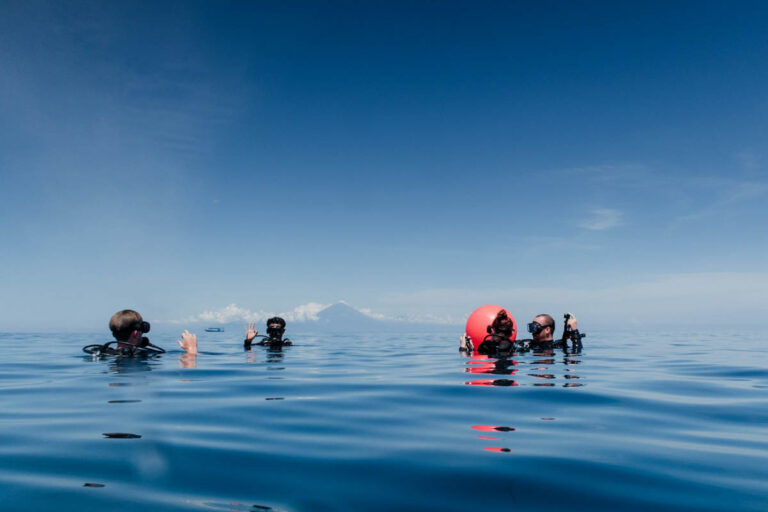Scuba diving is not just a sport; it is a gateway to personal transformation. Beneath the waves lies a world that challenges individuals to step beyond their comfort zones, embrace new skills, and develop a unique relationship with their instructor. The bond between a scuba instructor and student is pivotal, forming the foundation of safety, learning, and growth.
Learning to scuba dive goes beyond mastering technical skills; it demands the cultivation of trust, connection, and mutual understanding. This relationship shapes the student’s journey into the underwater world and highlights the instructor’s role in fostering personal development.
Building Trust in a Unique Environment
For many, the underwater world is unfamiliar and intimidating. Breathing through a regulator, managing buoyancy, and navigating beneath the surface can provoke anxiety and self-doubt. In these moments, the instructor’s calm, reassuring presence instills trust and creates a sense of safety.
This trust is not established through words alone. Students observe their instructor’s actions—how they communicate, respond to challenges, and maintain composure. These behaviors provide the reassurance students need to take their first steps into a world where they are out of their natural element. Trust empowers students to face fears, tackle challenges, and embrace the learning process.
Connection: The Heart of Effective Learning
The connection between a scuba instructor and their student is unique. It is not simply about passing on technical knowledge; it is about empathy, understanding, and shared experiences. A good instructor recognizes the emotions behind their student’s actions—whether it is the hesitation of a first dive or the joy of mastering a new skill.
However, it is essential to acknowledge that not all students and instructors will find the connection that facilitates optimal learning. People are fundamentally different, with unique ways of thinking, communicating, and engaging. When this connection does not naturally develop, it is no one’s fault. Instructors must recognize this reality and work to adapt their methods or recommend alternative solutions to ensure the student’s progress is not hindered.
The Power of Interaction in Skill Development
Scuba instruction is inherently interactive. Demonstrations, verbal feedback, and non-verbal cues bridge the gap between theory and practical application. An instructor’s ability to adapt their teaching style to the individual needs of each student can make all the difference.
Encouragement, patience, and clear communication foster a learning environment where students feel supported. This interaction extends beyond the technical. Positive reinforcement can instill confidence, while overly critical feedback can have the opposite effect. A skilled instructor balances honesty with encouragement to help students progress without undermining their self-esteem.
Words that Shape Confidence and Mindset
The language an instructor uses carries immense weight. A simple word of encouragement can inspire a student to push through doubt, while an ill-timed critique can cause unnecessary stress. Instructors hold the power to shape a student’s perception of their capabilities, making mindfulness in communication essential.
Every student is unique, bringing different strengths and challenges to their scuba journey. Instructors who understand this individuality and provide constructive, tailored feedback create an atmosphere of growth and empowerment. Acknowledging when a connection isn’t naturally forming and addressing it with professionalism is equally vital to maintaining a supportive learning environment.
A Collaborative Journey
The student-instructor relationship is a two-way street. While instructors guide students through their training, they also learn from the experiences and feedback students provide. The reciprocal dynamic fosters growth for both parties and builds a foundation of mutual respect.
Listening to students, understanding their concerns, and adapting teaching methods to suit their needs enhances the learning experience. This collaborative approach strengthens the bond between instructor and student and underscores the importance of trust and communication. When a connection does not naturally arise, instructors should view it as an opportunity to refine their skills, rather than a failure.
Life Skills Beyond the Dive
The impact of a great scuba instructor reaches far beyond the classroom or dive site. Scuba diving teaches resilience, problem-solving, and mindfulness—skills that enrich many aspects of life. The trust and connection formed during training serve as a reminder of the transformative power of human interaction.
For students, the journey of learning to scuba dive often becomes a personal milestone. It is an opportunity to overcome fears, build confidence, and discover new strengths. For instructors, guiding students through this process is both a responsibility and a privilege, leaving a lasting impact on those they teach.
Conclusion
In the end, the relationship between scuba instructor and student exemplifies how trust, empathy, and connection can inspire personal growth. While not all relationships will naturally foster the ideal connection, understanding this reality and working with it is a hallmark of a skilled instructor. Together, instructors and students dive not just into the ocean but into a shared journey of exploration and discovery.







